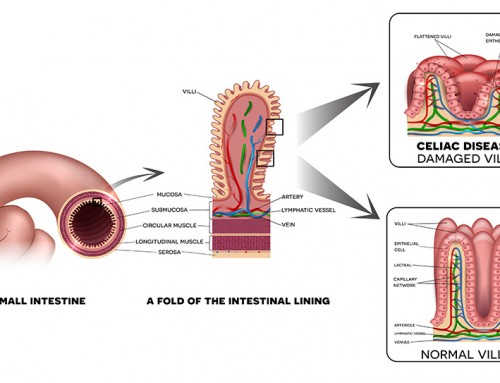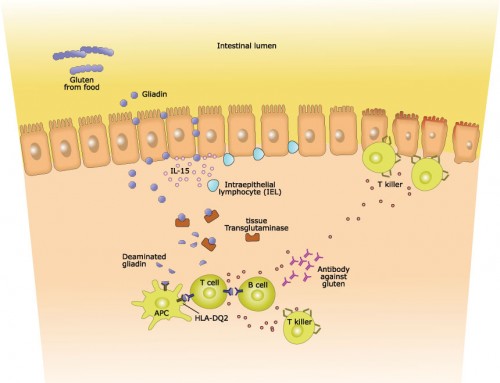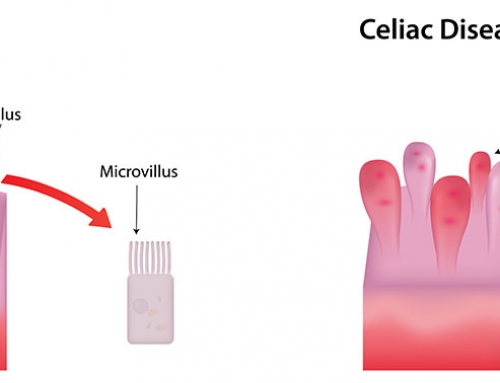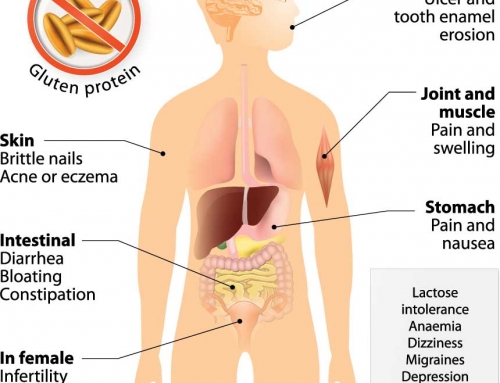What are the risk factors of Celiac Disease?
The etiology of celiac disease is currently unknown. However, there are risk factors that are associated with developing celiac disease.
Family history
People who have family history of having celiac disease or dermatitis herpetiformis have an increased chance of developing celiac disease.
Autoimmune disease
The risk for developing celiac disease is increased if the person has an autoimmune disease such as Type 1 diabetes, lupus, autoimmune thyroid and liver disease, Addison’s disease, Sjogren’s disease, or selective IgA antibody deficiency.
Genetic disorder
Celiac disease is more prone to develop in people with certain genetic disorders such as Down syndrome and Turner syndrome.
HLA genes associated with celiac disease
The presence of one or more specific alleles in the HLA-DQA1 and HLA-DQB1 genes (HLA-DQA1*05, HLA-DQB1*02 and HLA-DQB1*0302) can be detected in almost all the people with celiac diseases. People who have haplotype HLA-DQ2 (HLA-DQA1*05; HLA-DQB1*02) have the highest risk for developing celiac disease compared to the other haplotypes. People with haplotype HLA-DQ8 (HLA-DQB1*0302 dominant) also have an increased chance of developing celiac disease, but at slightly lower risk than people with HLA-DQ2 haplotype. People with only the HLA-DQB1*02 homozygous allele have slightly increased probability of developing celiac disease compared to people who are tested negative for HLA-DQA*05, HLA-DQB1*02 and HLA-DQB1*0302.
References:
Scanlon SA, Murray JA (2011). Update on celiac disease — etiology, differential diagnosis, drug targets, and management advances. Clinical and Experimental Gastroenterology. 4: 297-311.
Megiorni F, Mora B, Bonamico M, Barbato M, Nenna R, Maiella G, Mazzilli MC (2009). HLA-DQ and risk gradient for celiac disease. Hum Immunol 70(1): 55-59.
DNA In the News2017-04-06T19:04:52+00:00






